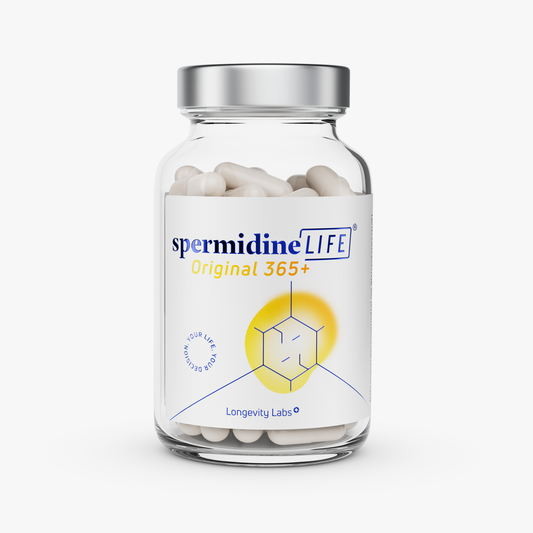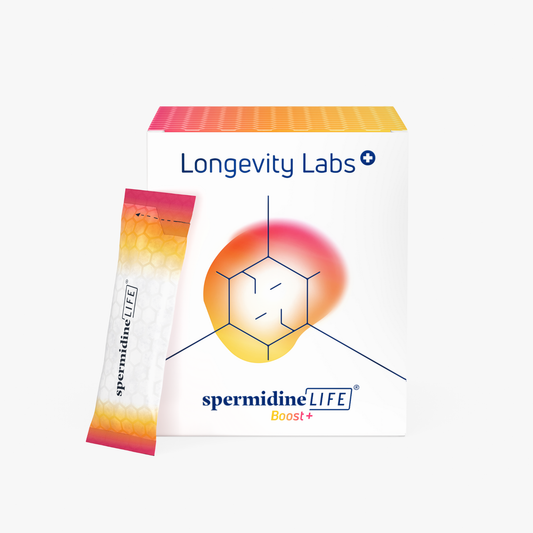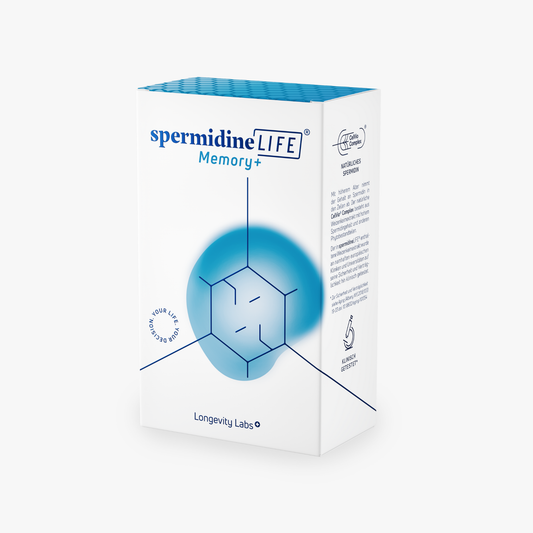
Autophagy during Intermittent Fasting – Why Fasting is Healthy
Fasting, Ali TeshniziAn important benefit of fasting is the so-called autophagy, a self-cleaning program of our cells. In this blog post, nutritionist and health expert Sandra Exl - also known as "LanaPrinzip" - addresses all questions about intermittent fasting and autophagy.
In the course of normal metabolism, micro-deposits consisting of defective and unusable cell components accumulate in our body cells. During fasting, autophagy is activated, whereby our body utilizes this material and obtains energy from it. At the same time, this process keeps our cells healthy and active. Properly functioning autophagy strengthens our immune system and lowers the risk of diseases such as cardiovascular problems, dementia, cancer and infectious diseases.
It is believed that the human body starts autophagy after 13 to 16 hours of fasting. Therefore, appropriate intermittent fasting, in which the body activates cellular cleansing for one or more hours several times a week, is excellent health care.
Eating too frequently, on the other hand, inhibits autophagy. This results in the accumulation of "cellular waste," which is often colloquially referred to as "slagging." Autophagy helps us understand why fasting is such a valuable health measure, and it is not even the only known mechanism of action of this powerful healing method.
Tips regarding intermittent fasting
Intermittent fasting can be very well supported and complemented by the following tips:
- The last meal before the fasting period should either be somewhat lighter or contain few carbohydrates (or both). The sooner the body runs out of its energy supplier sugar, the sooner it has to start its emergency programs, such as autophagy, to provide an alternative energy supply.
- If we exercise during the fasting period, this consumes additional energy. Carbohydrate reserves from food, and subsequently from the liver, run out faster, and as a result the body begins to utilize its cellular waste earlier.
- Taking spermidine, along with exercise, is an optimal complement to interval fasting and enhances its effects. For example, one can take spermidine-rich wheat germ extract during the fasting period or with food. If you additionally pay attention to a spermidine-rich diet, you can keep the spermidine levels in your blood constantly high.
For more information, feel free to watch the following video (only available in German):
What is spermidine?
Spermidine is a natural component of our cells and plays an important role in cell metabolism. On the one hand, we take in spermidine through food and on the other hand, our body can produce it itself. Chemically speaking, it is a polyamine. These are molecules that are formed during cell metabolism and are chemically similar to amino acids.
When we are young, the spermidine content in the body cells is still relatively high. However, the concentration of endogenous spermidine begins to decrease at around the age of 30. In this context, it is interesting to note that a strikingly high concentration of spermidine has been detected in the blood of healthy centenarians. Based on these observations, various research groups have investigated why this is the case and what effect it has in our organism. The exact physiological function has not yet been fully elucidated. But it has been shown in studies that the administration of spermidine to model organisms such as mice, yeast, flies and nematodes prolongs their lifespan. When cells are fed spermidine from the outside, they behave as if they were fasting. This was shown, for example, by molecular biologist Univ.-Prof. Dr. Frank Madeo from Graz and his team in various studies. This effect seems to be closely related to a specific process in the organism: autophagy.
Where can spermidine be found?
In principle, you can achieve a good spermidine supply with a whole-food, vegetable-rich diet, in which attention is paid to spermidine-rich foods. Wheat germ, nuts, mushrooms, fermented soybeans, long-ripened cheese, green peas, broccoli, whole grains, apples and citrus fruits are particularly high in spermidine. Because spermidine cannot withstand excessively high temperatures, foods rich in spermidine should not be fried or baked.
Spermidine as a food supplement
However, the aforementioned foods no longer meet the same quality standards as they did a few decades ago, which means that our bodies are supplied with fewer nutrients. Therefore, it makes perfect sense to supplement spermidine.
At the Karl Franzens University in Graz, Austria, years of research have resulted in the development of a special process for extracting spermidine from wheat germ, which is now used in the manufacture of spermidineLIFE® products.
The effectiveness and guaranteed spermidine content of the wheat germ extract of spermidineLIFE® are continuously monitored. These are therefore safe and effective products manufactured in Austria.
Renowned universities such as the Charité Berlin use spermidineLIFE® for their studies in the field of cell renewal and its influence on our entire body. It could be shown that the regular intake of spermidine is similar to the effects of fasting. Thus, spermidineLIFE® is an optimal supplement to fasting or even an option for those who are not fasting - according to the motto "fasting without having to fast".
The wheat germ used is sourced from certified farmers in the EU, which is essential in terms of sustainability and high quality standards. The spermidine from CelVio® Complex is thus 100% vegetable and natural.
The spermidine extract is available both in capsule form and as powder in sachets. This ensures easy application depending on preference.
Conclusion
Intermittent fasting is an easy way to do something good for your health. It has many positive effects - both on physical vitality and on the psyche. Choose the method that can be best integrated into your everyday life.
You can combine intermittent fasting with any form of nutrition, as well as the above-mentioned measures such as sports and spermidine supplementation. It is also advisable to do a complementary therapeutic fast of at least 5 days once or twice a year. Together with a healthy diet and sufficient exercise, fasting can undoubtedly be one of the key elements to keep ourselves fit and healthy into old age.
However, before you start fasting, we recommend that you consult with your doctor first - just to make sure that intermittent fasting or therapeutic fasting is right for you!
If you'd like to read more about interval fasting, its health benefits, or the different types of interval fasting, feel free to check out our previous blog post.
Wissenswertes rund um das Intervallfasten – spermidineLIFE®
Guest contribution of Mag. Sandra M. Exl (author & certified welfare chamfering companion)

Sandra Exl has a degree in biology, is a certified fasting guide and author of the book "Einfach Fasten". She works as an editor in the team of Lanaprinzip Publishing e.U. and writes about the topics of healing fasting and nutrition. With 25 years of fasting experience and many popular YouTube videos about therapeutic fasting, she is one of the best-known fasting experts in the German-speaking countries.






